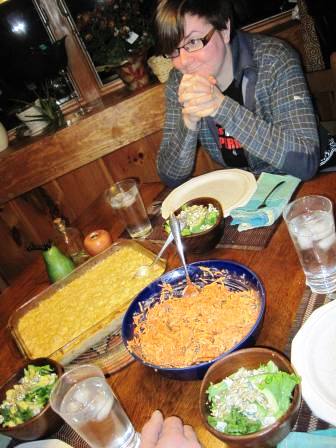 When my oldest daughter began spending time with her high school boyfriend’s family, she announced, “We don’t have any traditions.
When my oldest daughter began spending time with her high school boyfriend’s family, she announced, “We don’t have any traditions.
The best gift you can exchange in your family is time. Some of my favorite gifts of all time have been certificates for experiences and deeds done together.
Give them three gifts from Santa and spend the rest of the day cultivating a holiday tradition that will last long after the batteries die out from the high-tech gifts. Here are some of my favorite simple traditions.
- Take a long walk in the woods or in a park on Christmas Day.
- Make a special treat together, like cinnamon buns, Christmas cookies or hot cocoa.
- Build a fire inside or out and sing carols and other songs. Kids of all ages LOVE fire. Even if it’s frigid outside, spend some time together gathering firewood and creating the fire pit. This memory will last much longer than any gift you will ever purchase.
- Play some games together that don’t require electricity. Cards, dodge ball, ping-pong, board games, charades, make up a skit, let your imagination go.
- Do a craft together, even if it’s messy. Keep it simple or not. Have fun.
Be present with your kids. SHUT OFF your electronics when you’re with them and ask them for the same courtesy.
Slow down and make the days last. It might seem like your kids will never grow up. The days will morph into years, and they will leave home sooner than you can believe. Childhood will be sealed in a time capsule that can never be revised. The special memories can be retrieved and relived.
What are some of your family traditions?
PS — If you have a difficult child, spending 5 to 15 minutes a day with him or her can dramatically change your relationship and their behavior. Choose the positive attention as prevention, instead of negative detention afterwards.



